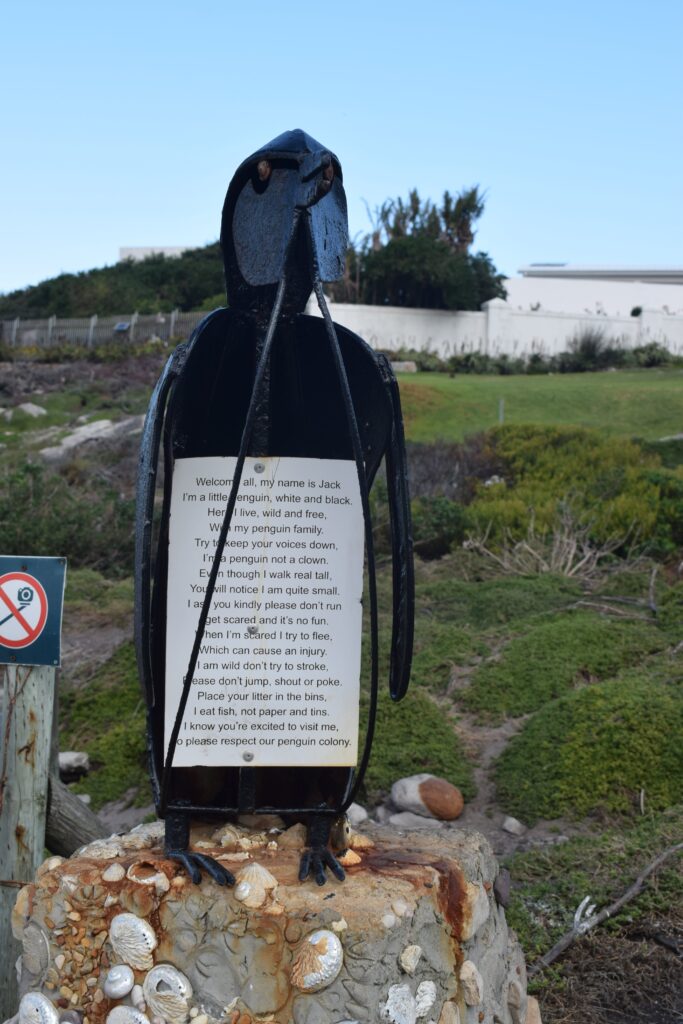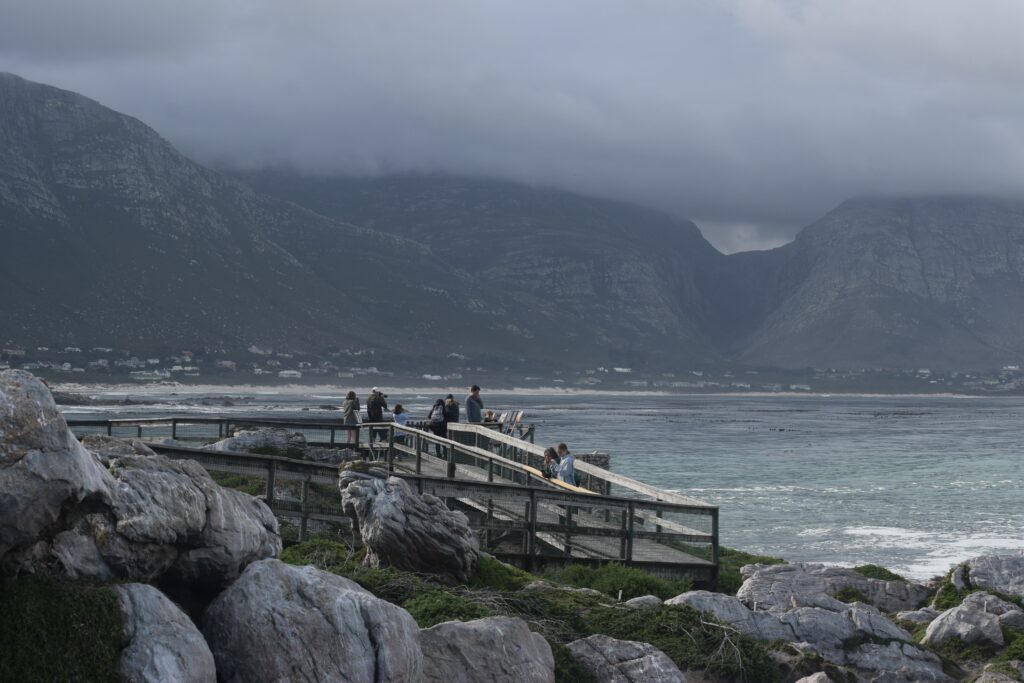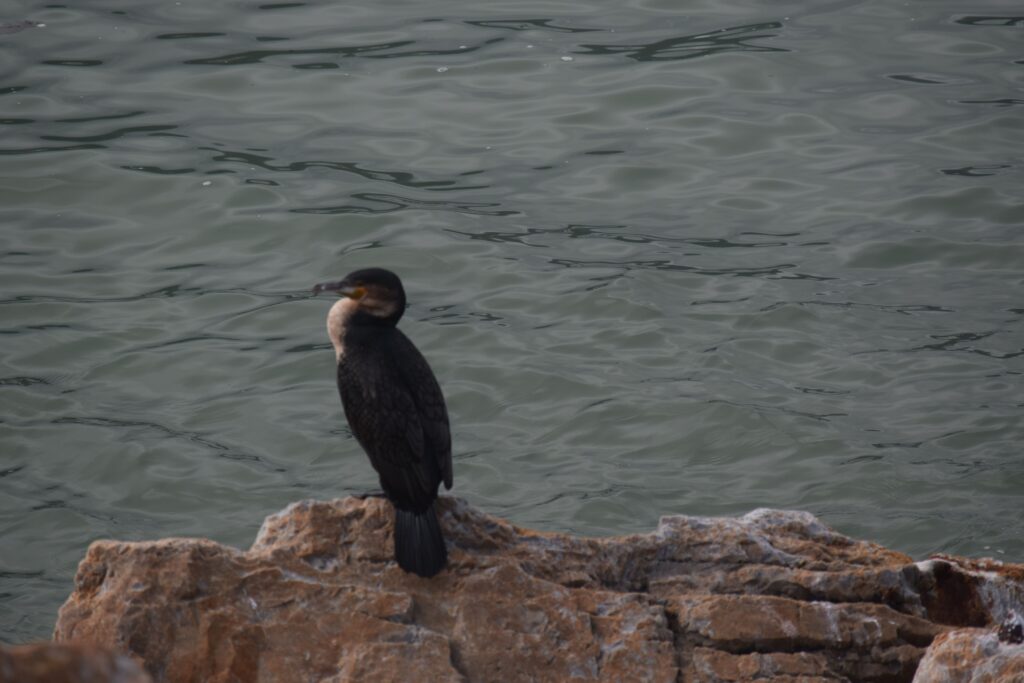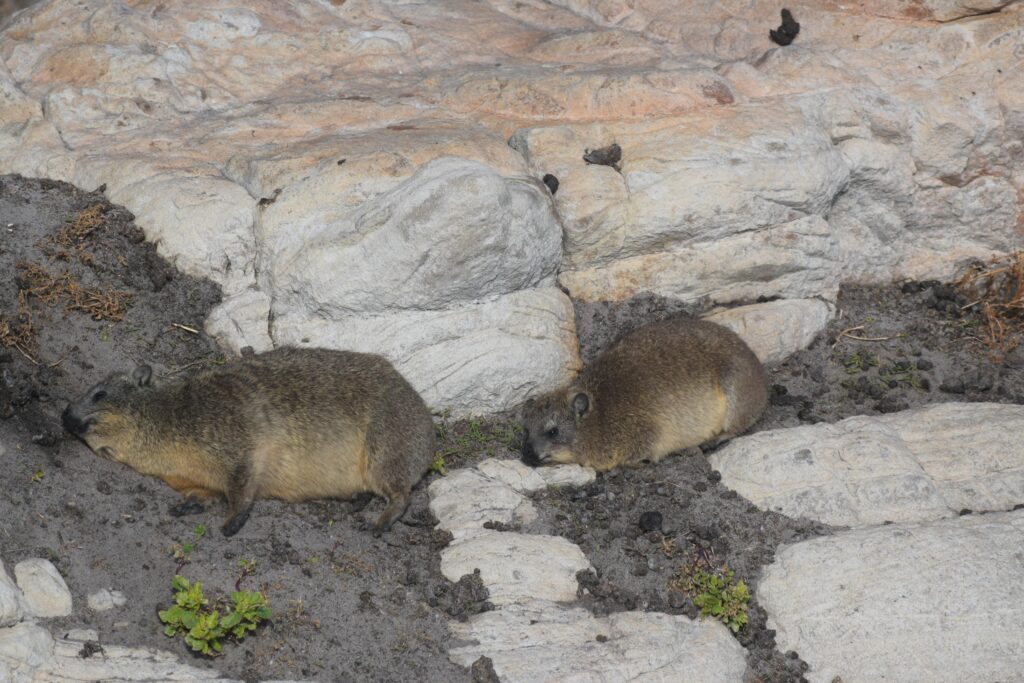If cute waddling birds appeal to you, a visit to the Stony Point Penguin Colony is a must! To help you plan your visit, we have all the information you need, from what Stony Point penguin colony is, where it is, how to get there, what you will see and why you should visit Stony Point’s penguin colony specifically!
What is the Stony Point Penguin Colony?

The Stony Point African Penguin and Seabird Breeding Colony is located in the Stony Point Nature Reserve and is part of the Kogelberg Nature Reserve. Stony Point’s Penguin colony is one of two land-based breeding colonies in South Africa with the other being Boulders Colony in Simons Town. It’s the third-largest breeding colony of African Penguins in the world and has successfully increased the breeding pairs.
Where is the Stony Point Penguin Colony?
South Africa’s Stony Point Penguin Colony is located near Betty’s Bay in the Western Cape Province of South Africa. Depending on traffic, it typically takes about 90 minutes to get from Cape Town’s city centre to Stony Point.
How to get to the Stony Point Penguin Colony?
The best way to get to Stony Point Penguin Colony is by car. You can either drive there yourself or take one of the available tours.
If you’re driving and using a GPS, here are the coordinates for Stony Point: GPS: 34 37 14.21 S, 18 89 32.65 E
If you’re not using a GPS, use these directions. From Cape Town‘s city centre, you take the N2 highway north. Just before you get to Sir Lowry’s Pass, you turn right onto Sir Lowry’s Pass Road. You will arrive at a T-junction in Gordon’s Bay where you turn left onto the R44 (also known as Clarence Drive). You continue to follow this road along the coastline. Drive past Rooi Els and Pringle Bay. When you see the first sign for Betty’s Bay, you turn right onto Porter Road. You follow Porter Road for about 2.5 km when you turn right onto Crassula Avenue. Then you turn right onto Disa Road at the four-way stop 600m down Crassula Avenue. You follow the Stony Point signs from here until you see Stony Point on your left.
Tours to Stony Point’s Penguin Colony

The following day tours from Cape Town will take you to Stony Point’s penguin colony:
- From Cape Town: Shark Cage Diving and Penguin Tour
- Hermanus Whale Watching Boat Trip and Stony Point Penguins Day Tour
- Cape Agulhas | Stony Point Nature Reserve
If you’re looking for a longer tour to explore not only the Stony Point Penguin Colony but also other parts of South Africa, consider these multi-day tours:
- Garden Route and Addo Elephant National Park: 5-Day Safari
- Garden Route and Addo Elephant National Park: 6-Day Safari
Penguins at the Stony Point Penguin Colony
African penguins breed on only 25 islands and 3 mainland sites between central Namibia and Algoa Bay in South Africa. It is the only penguin breed breeding in Africa. The African penguin used to be called jackass penguins because they make a sound like a braying donkey. The African penguin is considered endangered.
The first nest at Stony Point was found in 1982. Now Stony Point houses more than 3 600 African Penguins!
The word penguin may be from Welsh origin from the word pen gwyn which means ‘white head’.
Stony Point allows visitors to walk through the colony on a constructed boardwalk from where they can have a close-up view of the African penguins in their natural habitat. Along the boardwalk, you’ll find information boards teaching you about African penguins, other penguins worldwide and the history of the old whaling station.

The penguin colony is on the site of the old Waaygat Whaling Station. The Whaling Station was used to harvest and process whale meat in the early to mid-1900s. You can see some of the remnants of the infrastructure and machines at the site.

The Stony Point Penguin Colony does research on penguins and as you explore the area, you may find colour-coded nests. Green shows that there are penguin chicks and yellow shows that the nest contains penguin eggs.
Penguin nests have leafy coverings with a hole as their entrance. From the boardwalk, you may see some penguins lying in their nests. If you are lucky, and depending on when you visit, you may see penguin eggs or chicks.
Other animals you’ll see at Stony Point
Not only will you see the African penguins at Stony Point, but also cormorants. There are three types of cormorant at Stony Point, including the Crowned cormorant, Cape cormorant and Bank cormorant. These cormorants breed on the outer rocks.

You can also see other animals at Stony Point, including Hartlaub’s Gulls and Kelp Gulls. Many Dassies, also known as the Rock Hyrax, run around or lie on the rocks.
A community restaurant adjacent to Stony Point also sells refreshments and food during the day.
Why visit Stony Point’s Penguin Colony?


Most people visit Boulder’s Colony in Simon’s Town, near Cape Town. There are several benefits to visiting Stony Point if you have an interest in penguins:
- The entrance fee is very reasonable
- It is a little off the beaten path and not that busy
- You get to do the beautiful Clarens Drive if you are coming from Cape Town
- You may spot some baboons along the way
- It is not far from Stellenbosch
- You will get close to large groups of penguins
- There are plenty of dassies around!
- You will learn more about African penguins from the helpful information boards along the boardwalk.
- There are beautiful mountain and ocean views from Stony Point.
- You can visit the Harold Porter Botanical Garden nearby.
- If you visit during whale season, you may be able to see whales from Betty’s Bay.
Practical details for visiting Stony Point’s Penguin Colony
You can visit Stony Point without difficulty if you’re using a walking stick or wheelchair. You won’t have a problem using your cellphone at Stony Point as you will have a cellphone network signal.
Stony Point Penguin Colony opening hours
The opening hours are from 8:00 to 16:30. The last possible time to enter is at 16:00.
Stony Point penguin colony’s entrance fee
The entrance fee to Stony Point is R25 per person.

Contact information
Stony Point Nature Reserve office phone number: +2787 087 3001
Emergency number: +2782 453 0835

